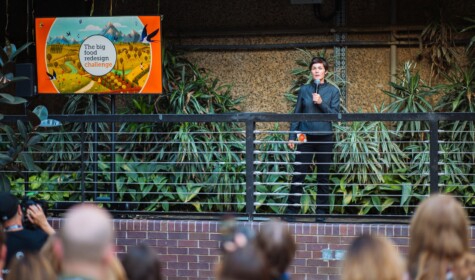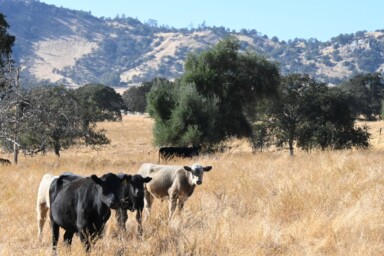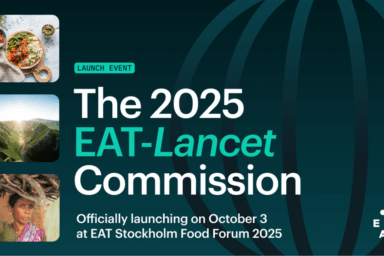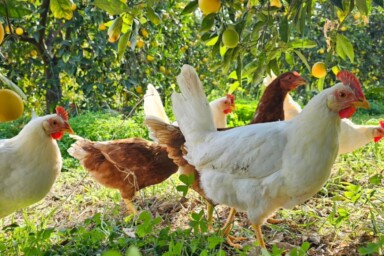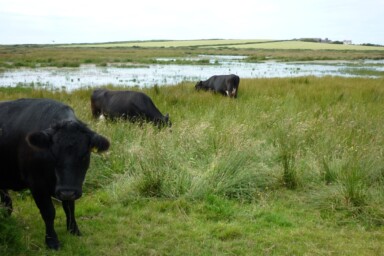
The current food system doesn’t work for everyone, and, as we’re increasingly recognising, it certainly doesn’t work for the environment. Industrial farming has turned agriculture into a leading source of greenhouse gas emissions and pollution and is driving the extinction of species. But that isn’t all – not only do we produce food in a way that is damaging to nature and to ourselves, but we also waste almost a third of it, while nearly 10% of the world’s population go hungry.
Rather than negatively impacting nature, food products can be designed in ways that help nature thrive. By rethinking the ingredients used in food production and how products are made, food brands and retailers have the power to make nature-positive food the norm. They can provide choices that are better for customers, better for farmers and better for the climate.
Imagine a food system where, at minimum, every choice consumers make is a good one for nature. One where every box of cereal, every bag of flour, cold drink, treat and all our fresh fruit and veg, is actively improving soil health, building biodiversity and contributing to tackling climate change.
This is the food system we can have when we start to think differently about how we design food.
In 2023, the Ellen MacArthur Foundation, in partnership with the Sustainable Food Trust, launched the Big Food Redesign Challenge. The Challenge, enabled thanks to funds raised by players of People’s Postcode Lottery, aims to catalyse and inspire the food industry to build a better food system, based on the principles of a circular economy.
It brings together ambitious producers, retailers, start-ups and suppliers to design new food products – or redesign existing ones – to regenerate nature.

Many are already taking up this huge opportunity, with over 150 products from more than 60 organisations being brought to life in the Production Phase of the Challenge. From ragu made using regeneratively farmed lentils to porridge produced from oat-milk leftovers and ancient grains, the pathway to a food system designed for nature to thrive isn’t straightforward, but it’s one of the most powerful things we can do to tackle climate change and build biodiversity.
Every product has been assessed based on alignment with the Circular Design for Food Framework and is able to demonstrate that:
- The majority of constituent ingredients are sourced from production systems that are indicative of regenerative outcomes for nature.
- Products fulfil at least one of the three design opportunities identified in the Circular Design for Food Framework (use of lower impact, diverse and upcycled ingredients).
- Packaging is free from materials that are problematic and meets as many circular economy goals as possible.
Participants are also encouraged to connect and collaborate with the suppliers of their ingredients, a process enabled by use of a survey developed by the Sustainable Food Trust for use in the Challenge that is based on the Global Farm Metric framework.
For the last six months, participants from across the UK, US, Europe, Africa and Latin America have been working hard to turn their product designs into a reality. You can follow their journey in the Foundation’s new video series, ‘Redesigning Food: Behind the scenes’, where they navigate the complexities of designing food for nature to thrive, push the boundaries of food design and turn obstacles into opportunities for growth and innovation.
Whilst participants are racing to produce food that helps nature thrive, momentum is building for the Showcase Phase of the Big Food Redesign Challenge, where products will be available to be enjoyed worldwide. The latest retailer to sign up to the Challenge is Fortnum & Mason, who join Waitrose in the UK and Grupo Carrefour Brazil in bringing Challenge products to their shelves in early 2025.
It’s these collaborations that aim to inspire innovation, action and drive positive change within the food industry.
To find out more about the Challenge, follow the journey and stay up to date with the latest behind-the-scenes videos.
Photos courtesy of Chris Cooper, taken at the launch of the Big Food Redesign Challenge at the Barbican in London, May 2023.
